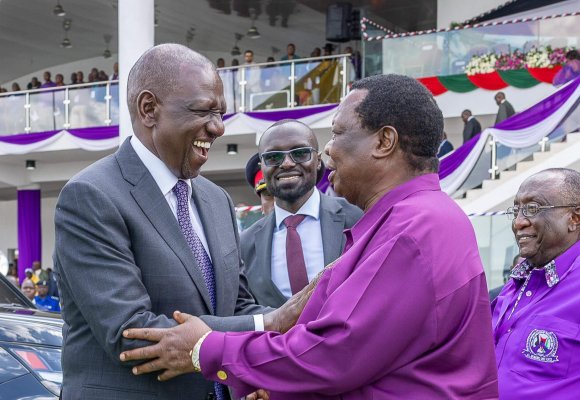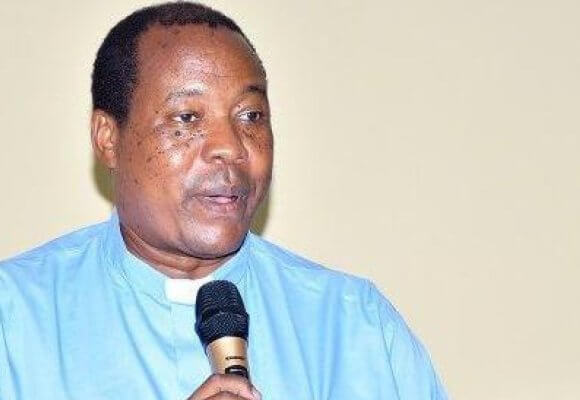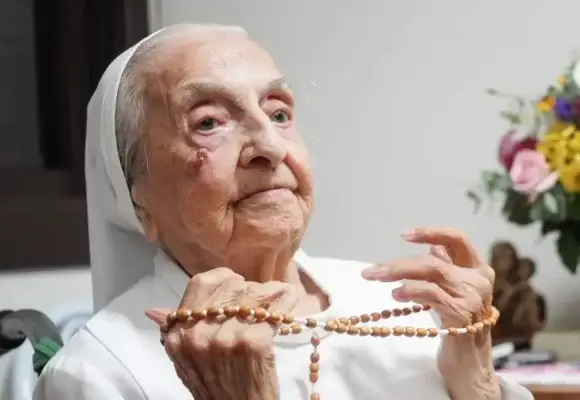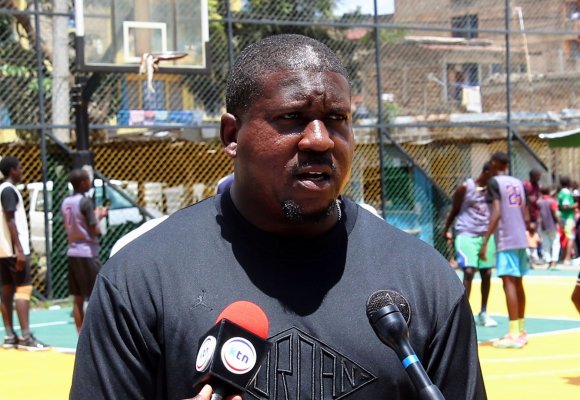|
LISTEN TO THIS THE AFRICANA VOICE ARTICLE NOW
Getting your Trinity Audio player ready...
|
Government’s Plan to Privatize KICC Sparks Debate
The Kenyan government’s proposal to privatize several state-owned enterprises, including the Kenyatta International Convention Centre (KICC), has ignited a nationwide discussion, with proponents touting economic benefits and opponents expressing concerns about potential asset losses and diminished public control.
The proposed privatization plan, announced on November 28, encompasses a range of entities, including the Kenya Pipeline Company (KPC) and the New Kenya Cooperative Creameries (KCC). However, it is the proposed sale of KICC, a symbolic landmark and a source of national pride, that has drawn the most attention and sparked the fiercest debate.
Critics of the privatization plan argue that selling KICC, a building that has hosted international conferences and events, would be an act of disservice to the nation’s heritage and a severing of a vital link to its past. They contend that such a move would prioritize short-term financial gains over long-term national interests.
Senator Okiya Omtatah of Busia has vowed to oppose the government’s privatization efforts, citing concerns about the International Monetary Fund’s endorsement of the plan. He has expressed apprehension about the potential loss of control over critical industries and the erosion of public ownership.
Azimio leader Raila Odinga has also voiced opposition to the proposed privatization, emphasizing the strategic importance of certain entities, such as KPC, and the need to safeguard them from private ownership. He has urged the government to reconsider its plans and prioritize alternative strategies for revitalizing struggling parastatals.
Nairobi Senator Edwin Sifuna has advocated for a referendum to allow Kenyans to directly weigh in on the privatization decision. He has argued that leaders should not have the power to unilaterally dispose of assets belonging to the entire nation without the consent of the people.
Sifuna’s position aligns with the sentiments of many Kenyans who believe that the government lacks the authority to make such significant decisions without consulting the public. They argue that a referendum would provide a platform for Kenyans to express their views and collectively determine the fate of these national assets.
The government, in defense of its proposal, maintains that privatization is essential to revitalize struggling parastatals, generate much-needed revenue, and reduce the burden on taxpayers. They point to the Privatization Act 2023, which empowers the Treasury Cabinet Secretary to identify and privatize entities that meet specific criteria, including strategic importance, financial viability, and potential impact on the economy.
As the debate intensifies, the government faces the challenge of balancing economic considerations with the concerns of its citizens. The proposed privatization plan has undoubtedly struck a nerve, highlighting the delicate balance between economic progress and national identity. The decision that lies ahead will have far-reaching implications for Kenya’s future and will shape the nation’s approach to managing its assets and ensuring the well-being of its people.
ODM Supporter Nuru Okanga Charged With Insulting President Ruto
Nuru Okanga, a staunch supporter of the Orange Democratic Movement (ODM), was arraigned in a Nairobi court on Thursday for allegedly maligning President William Ruto on a YouTube channel.
The court heard that Okanga, using the RIBA NEWS account, published disparaging remarks about the president on November 20, 2023, at an undisclosed location.
The prosecution alleged that Okanga’s comments, which were deemed false and intended to damage Ruto’s reputation, constituted a breach of peace.
Okanga pleaded not guilty to the charges, stating that he was a student and the sole breadwinner of his family. The magistrate granted him bail of Sh10,000, and the case was adjourned to December 13 for pre-trial hearing.
However, President Ruto’s digital secretary, Dennis Itumbi, denounced Okanga’s arrest, calling it unwarranted and not sanctioned by the president. “I completely disagree with the idea of arresting bloggers for insulting the President. Whoever is doing it, leave them alone. There actually exists a right to offend, shock, or disturb,” Itumbi stated.
ODM’s Communications Director, Philip Etale, echoed this sentiment, emphasizing the constitutional right to freedom of speech and expression. “Arresting Nuru Okanga for speaking truth to power is unacceptable. He has the right to criticize anyone, including the President,” Etale remarked.
The Penal Code prohibits the use of threatening, abusive, or insulting language or engaging in provocative acts or causing a breach of the peace.
If convicted, the penalty is a fine of Sh5,000 or imprisonment for up to six months, or both. To be considered offensive, language or conduct must be calculated to hurt the feelings, arouse anger, anger, disgust, or outrage in a reasonable person.
After denying the charges before Milimani Chief Magistrate Lucas Onyina, he was released on bail of Sh10,000 pending a pre-trial on December 13. Itumbi offered to deploy lawyer Waithera Kinuthiah to represent Okanga if he agreed. “Please, wakili Waithera Kinuthiah, if Nuru Okanga agrees, represent him in court at my cost,” he stated.
However, shortly after being charged, Okanga posted an apology on his Facebook page: “I was arrested for exercising my constitutional rights. Apologies to those who were offended. May God bless Kenya. Peace.”
















































LEAVE A COMMENT
You must be logged in to post a comment.